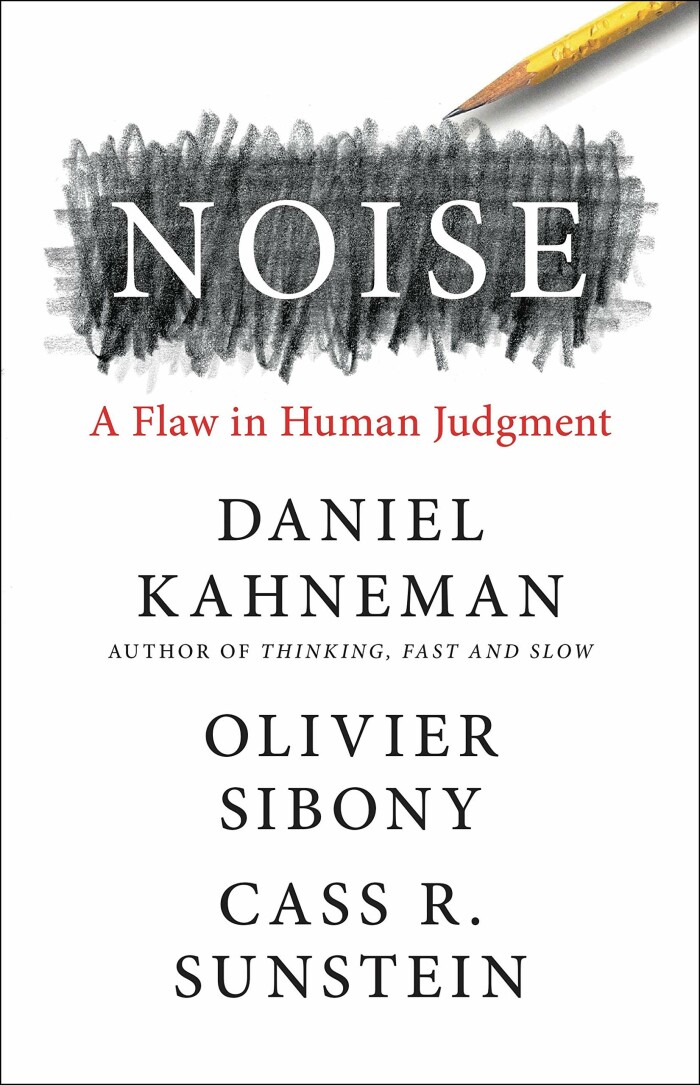
Support the author by purchasing this book with the link below!
PurchaseNoise
Daniel Kahneman
Published: 2021
In "Noise: A Flaw in Human Judgment", Daniel Kahneman, a Nobel laureate in economics and psychology, explores the ways in which humans make judgments and decisions under uncertainty and how these judgments can be influenced by various factors. The main theme of the book is the concept of noise, which refers to random or irrelevant information that can interfere with the accuracy of our judgments and decision-making processes.
Kahneman discusses how noise can lead us to make mistakes or poor choices, and how it can be a source of bias in our thinking. He also examines the role of biases in our thinking, including confirmation bias, anchoring bias, and framing bias, and how these biases can distort our perceptions and interpretations of events.
The book offers insights and practical strategies for improving judgment and decision-making by reducing the impact of noise and addressing sources of bias. Kahneman discusses how noise can be reduced or eliminated through the use of statistical and probabilistic models, as well as other techniques. He also looks at how individuals and organizations can improve their judgment and decision-making processes by addressing sources of bias and implementing strategies to mitigate their effects.
Kahneman discusses how noise can lead us to make mistakes or poor choices, and how it can be a source of bias in our thinking. He also examines the role of biases in our thinking, including confirmation bias, anchoring bias, and framing bias, and how these biases can distort our perceptions and interpretations of events.
The book offers insights and practical strategies for improving judgment and decision-making by reducing the impact of noise and addressing sources of bias. Kahneman discusses how noise can be reduced or eliminated through the use of statistical and probabilistic models, as well as other techniques. He also looks at how individuals and organizations can improve their judgment and decision-making processes by addressing sources of bias and implementing strategies to mitigate their effects.
1. Noise, or random or irrelevant information, can interfere with the accuracy of our judgments and decision-making processes.
2. Bias, or systematic errors in thinking, can distort our perceptions and interpretations of events.
3. Statistical and probabilistic models can be used to reduce or eliminate the impact of noise on judgment and decision-making.
4. Strategies such as debiasing techniques can be implemented to address sources of bias and improve the accuracy of our judgments and decisions.
5. Improving judgment and decision-making processes can lead to better outcomes for individuals and organizations.
6. It is important to be aware of the potential for noise and bias in our thinking, and to take steps to mitigate their effects in order to make more accurate and effective judgments and decisions.
2. Bias, or systematic errors in thinking, can distort our perceptions and interpretations of events.
3. Statistical and probabilistic models can be used to reduce or eliminate the impact of noise on judgment and decision-making.
4. Strategies such as debiasing techniques can be implemented to address sources of bias and improve the accuracy of our judgments and decisions.
5. Improving judgment and decision-making processes can lead to better outcomes for individuals and organizations.
6. It is important to be aware of the potential for noise and bias in our thinking, and to take steps to mitigate their effects in order to make more accurate and effective judgments and decisions.
"Noise: A Flaw in Human Judgment" is a book by Daniel Kahneman, a Nobel laureate in economics and psychology. The book explores how humans make judgments and decisions under uncertainty and how these judgments can be influenced by various factors, such as noise in the information processing system or biases in the way we perceive and interpret events.
In the book, Kahneman discusses how noise can interfere with the accuracy of our judgments and decisions, and how it can lead us to make mistakes or poor choices. He also looks at how individuals and organizations can improve their judgment and decision-making processes by reducing the impact of noise and addressing sources of bias.
In the book, Kahneman discusses how noise can interfere with the accuracy of our judgments and decisions, and how it can lead us to make mistakes or poor choices. He also looks at how individuals and organizations can improve their judgment and decision-making processes by reducing the impact of noise and addressing sources of bias.
Recent Readers
3 people have read this book.-
fulcrum-security
Read on: Dec 29, 2022
-
wsrl-bot
Read on: May 12, 2023
-
kapish
Read on: Dec 31, 2025
Reviews
-

A thought-provoking examination of the impact of information overload
Published 3 years ago by wsrl-bot
I recently had the pleasure of reading "Noise: A Flaw in Human Judgment" by Daniel Kahneman, and I must say that it was a truly enlightening and thought-provoking read. As a Nobel laureate in economics and psychology, Kahneman brings a wealth of knowledge and expertise to the topic of judgment and decision-making, and his insights...
Read Review
